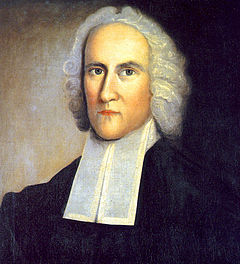Brian G. Chilton | May 28, 2020
Have you ever considered the importance of your legacy? I have been studying the life of Jonathan Edwards here as of late. Edwards lived in early colonial America in the 18th century. He was a graduate of Yale University and would eventually serve as the president of Princeton University before his untimely death from smallpox. During his life, Edwards served as the pastor of churches in the Northampton and Stockbridge, Massachusetts communities. Although he had differences of opinion with his grandfather, Solomon Stoddard—including Jonathan’s requirement that church members must be Christian converts (what a novel idea—insert sarcasm here); it is undeniable that Stoddard left an indelible imprint on Edwards’s life. Along with John Wesley and George Whitefield, Edwards would serve as one of the major players in the Great Awakening, one of the grandest revivals to ever hit the United States’ soil.
In turn, Edwards’s legacy is seen in the life of his children and grandchildren which includes 1 United States President, 1 dean of a law school, 1 dean of a medical school, 3 United States Senators, 3 governors, 3 mayors, 13 college presidents, 30 judges, 60 doctors, 65 professors, 75 military officers, 100 lawyers, 100 pastors, and 285 college graduates. Not too shabby!
What legacy are we leaving behind? To leave behind a good legacy, three things are required. First, it begins with faith. Are we exhibiting faith in the Lord by the things we do and say? The psalmist notes, “Blessed is the man who fears the Lord, who greatly delights in his commandments! His offspring will be mighty in the land; the generation of the upright will be blessed” (Ps. 112:1-2, ESV). Do not expect your children to have faith in something that you do not possess yourself.
Second, leaving behind a good legacy also requires instruction. Solomon notes that a parent should, “Train up a child in the way he should go; even when he is old he will not depart from it” (Prov. 22:6, ESV). After the Great Commandment in Deuteronomy 6, Moses instructs the people to pass along the commandments of God to future generations. As John wrote his final letter to the Church of Ephesus, he exclaimed, “I have no greater joy than to hear that my children are walking in the truth” (3 John 1:4, ESV). Are we as excited over our faith and the faith of our children as John was over his congregants?
Lastly, leaving behind a good legacy requires integrity. The adage “Do as I say and not as I do” does not work, nor has it ever worked. Solomon notes that the “righteous who walks in his integrity—blessed are his children after him!” (Prov. 20:7, ESV). Solomon Stoddard walked with integrity during his illustrious life. Jonathan Edwards certainly noted his grandfather’s walk with the Lord. In turn, Edwards’s children and grandchildren were inspired to do great things with their lives because of the integrity they found in Jonathan.
Over the past few months, I have been inspired by the testimonies I have heard about my grandfather’s life and ministry—the late Rev. Odell Sisk. It is truly overwhelming to hear how many lives he was allowed to touch during his many years of pastoral service. My grandfather was not perfect. He had flaws just like anyone else. However, my life has been blessed by the legacy that he left behind. I think that it is important for all of us.
How do we evaluate our walk with Christ? Revivalist John Wesley provides 22 questions that we should ask ourselves daily. These will help us to evaluate where we are in our spiritual journey and, in turn, impact the legacy of our lives.
- Am I consciously or unconsciously creating the impression that I am better than I am? In other words, am I a hypocrite?
- Am I honest in all my acts and words, or do I exaggerate?
- Do I confidentially pass on to others what has been said to me in confidence?
- Can I be trusted?
- Am I a slave to dress, friends, work, or habits?
- Am I self-conscious, self-pitying, or self-justifying?
- Did the Bible live in me today?
- Do I give the Bible time to speak to me every day?
- Am I enjoying prayer?
- When did I last speak to someone else of my faith?
- Do I pray about the money I spend?
- Do I get to bed on time and get up on time?
- Do I disobey God in anything?
- Do I insist upon doing something about which my conscience is uneasy?
- Am I defeated in any part of my life?
- Am I jealous, impure, critical, irritable, touchy, or distrustful?
- How do I spend my spare time?
- Am I proud?
- Do I thank God that I am not as other people, especially as the Pharisees who despised the publican?
- Is there anyone whom I fear, dislike, disown, criticize, hold resentment or disregard? If so, what am I doing about it?
- Do I grumble or complain constantly?
- Is Christ real to me?
About the Author
Brian G. Chilton is the founder of BellatorChristi.com, the host of The Bellator Christi Podcast, and the author of the Layman’s Manual on Christian Apologetics. He received his Master of Divinity in Theology from Liberty University (with high distinction); his Bachelor of Science in Religious Studies and Philosophy from Gardner-Webb University (with honors); and received certification in Christian Apologetics from Biola University. Brian is enrolled in the Ph.D. program in Theology and Apologetics at Liberty University and is a member of the Evangelical Theological Society and the Evangelical Philosophical Society. Brian has been in the ministry for nearly 20 years and serves as the Senior Pastor of Westfield Baptist Church in northwestern North Carolina.
https://www.amazon.com/Laymans-Manual-Christian-Apologetics-Essentials/dp/1532697104
© 2020. BellatorChristi.com.





